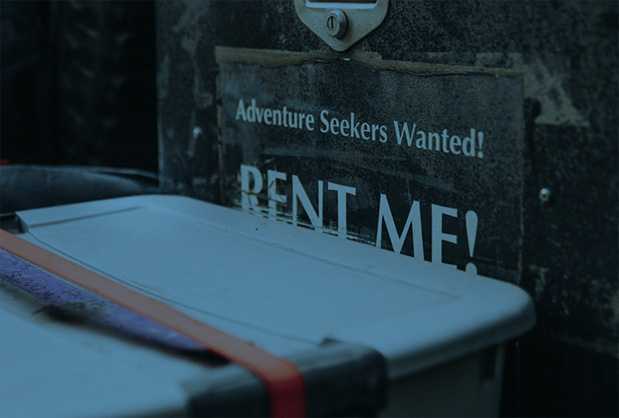Whether renting a home for the long or short-term, it is important to carefully vet a potential landlord (as they will also be vetting you, the tenant/subletter). By asking the right questions, you will be more likely to avoid unexpected surprises after move-in. After all, planning your travel can already be stressful, so let’s make the process of finding your temporary housing easier. It will help to have any concerns ironed out before signing on the dotted line.
Whether you are looking to rent a home in your own country or abroad, it’s best to do a face-to-face video chat before checking references, signing a contract and arranging payments. It is important to see if you like and feel comfortable with the homeowner or landlord.
There are many questions to ask a landlord that can help you decide if it is a good fit. Here are our recommended ten questions to ask before signing a lease or contract.
Related: 5 Simple Steps to Get Started with Sabbatical Homes
Key Rental Questions: Applications, Leases & Payments
1. What is the application process?
The first question to ask the landlord about is the application process. It’s best to start by confirming all the lease details that you are aware of and following up with understanding the steps involved. For example, if the landlord requires personal and employer reference letters, you can prepare them in advance.
Be sure to ask if background and credit checks will be performed. If yes, then what information do they need to carry this out and will it be a soft or hard check? A hard check can hurt one’s score, so it’s worth evaluating whether this check is necessary.
Moreover, ask what criteria they are using to evaluate the background or credit checks. This will be different from country to country. In the United States, landlords will typically take a look at your credit score. It is possible in the U.S. that a landlord will only lease his or her place to someone with an 800+ credit score. If this is the case and that’s a score that you don’t have, then this is an opportunity to discuss and see if there’s a workaround (e.g., paying a portion of the lease up-front in advance).
Related: Checking References: The First Step to a Successful Stay
2. What lease options do you have?
With short-term leases, there’s a chance the landlord may be flexible with their lease and payment terms.
Although the listing may state a minimum amount of time for a lease with month-to-month payments, there’s a chance the landlord may be willing to take on a shorter lease if payments are completed in advance. If you do pay in advance, make sure to check references on the homeowner or landlord.
Similarly, being sure of the exact move-in and move-out dates is crucial with short-term leases. Confirm that the home will be available for occupation on the date you need to move in, and the final day you will need to vacate the home. There’s a chance the landlord may have agreed to other dates with existing or upcoming tenants for other lease periods, so it’s important to make sure the dates fit with your plans.
Related: What about Rental Regulations and Permits?
3. Are there any deposits or non-refundable fees?
Similarly, ask if there are any deposits or non-refundable fees that are additional to the stated lease amount. Sometimes short-term rentals have non-refundable cleaning fees or amenity deposits that aren’t clearly listed in the lease amount but are in the details of the contract, so find out about those ahead of time if you can.
4. What payment methods do you accept?
Understanding how your landlord expects you to pay rent is important. Some landlords may accept any common method, but some may be more particular and ask for post-dated cheques or secured bank drafts.
Knowing this can help to sort out bank details and see if it’s a realistic method for you to make payments. Double-checking helps to avoid any issues later. This is especially important if you are planning a sabbatical in another country, as you may need to arrange some of your finances before you travel.
Related: Finding the Right Payment Methods
Rental Information: Pets, Amenities, Maintenance, Guests & More
5. What’s your pet policy?
Most short-term leases will have clear pet policies that require pet deposits and additional cleaning fees should a pet reside in the place with the tenant. Other landlords may have a clear rule on not having pets.
Some listings have specifically requested house sitting help regarding their own pets, so now is the time to have the conversation about what they want and what you are comfortable doing. It could be a great fit (or not) for you to help take care of their pets.
Either way, it’s good to ask the landlord what their pet policy is and any associated details or fees if those are not already included in their listing details.
Related: Pets on Sabbatical
6. What amenities are available?
There may be amenities included within the home and/or in the building that are part of the lease or excluded from it. If the home is an apartment, amenities outside of the unit may also be available such as the building gym or pool. Check to see if these are included for your use or not.
If you are looking for a place to stay to finish writing a book or to do research on your specialty, you may want to ask where the best place in the house is to read, write, or do other work. Other questions to ask might be:
- Is the WiFi strong and reliable?
- Is there enough sunlight? Is there enough desk light?
- Is there a quiet space where you can concentrate if you are traveling with your family?
7. How to handle maintenance issues?
Knowing what to do when things go wrong when you are renting is a great question to ask the homeowner as well. If repairs need attention or appliances don’t work, is the point of contact the landlord or someone else such as the property or building manager? How easy is the process of requesting a repair, and are there any small fixes the homeowner would like you to do?
It is also important to remember that most SabbaticalHomes.com members want to make sure that the person who will be living in their property is someone who is interested in taking care of their home. After all, renting a property on our website is more of a collaboration than a mere business transaction. Ask what their expectations are; this is your chance to inform your prospective landlord of your expectations as a tenant as well.
8. What’s the guest policy?
Some landlords may also have strict guest policies for their place. Anyone that enjoys throwing the occasional dinner party could find themselves in for a surprise when they find out that this is, in fact, not allowed as per the lease agreements.
Check with the landlord early on concerning rules in place for the number of guests that you can have over. Moreover, check to see if the building or neighborhood has quiet hours or parking restrictions that need to be observed.
Related: Home Exchange Communication Tips
9. Are there any construction or noise concerns?
Being aware of noise concerns or construction nearby that can be noisy or limit access to the place during the lease period is important. Nothing is worse than viewing a place during the day only to find out after move-in that loud roadwork happens at night right outside your bedroom window.
Ask the landlord if there’s any ongoing construction or upcoming projects. You want to make sure that you will be able to have peace and quiet when you will be reading, writing, studying, or sleeping. If you will be traveling with babies and young kids, this may be even more of a priority for your family.
Additionally, check if there are any other noise concerns that you should be aware of that can be a disturbance. If possible, visit the property at different hours of the day and ask any neighbors. If you have only visited a home during the weekend, try to go by on a weekday. In many countries, weekends may be quiet and construction activity will be concentrated on weekdays.
10. Is there anything else I should know?
Finally, an open-ended question of anything else the homeowners should mention is an excellent way to find out any essential points the landlord may have forgotten about as they answered all your previous questions.
Perhaps you could even ask to speak to someone who has been a tenant in the past, or to someone who has referred your landlord’s property. Many SabbaticalHomes.com members have found that they become lifelong friends with those living in their homes, and the best way to start that process is with open lines of communication. The best matches are made based on mutual respect for the home and other people.
Related: Learn more about Matches on SabbaticalHomes.com
Let us know what you think! Connect with us on Twitter, LinkedIn, Facebook, Instagram, YouTube and Pinterest.





